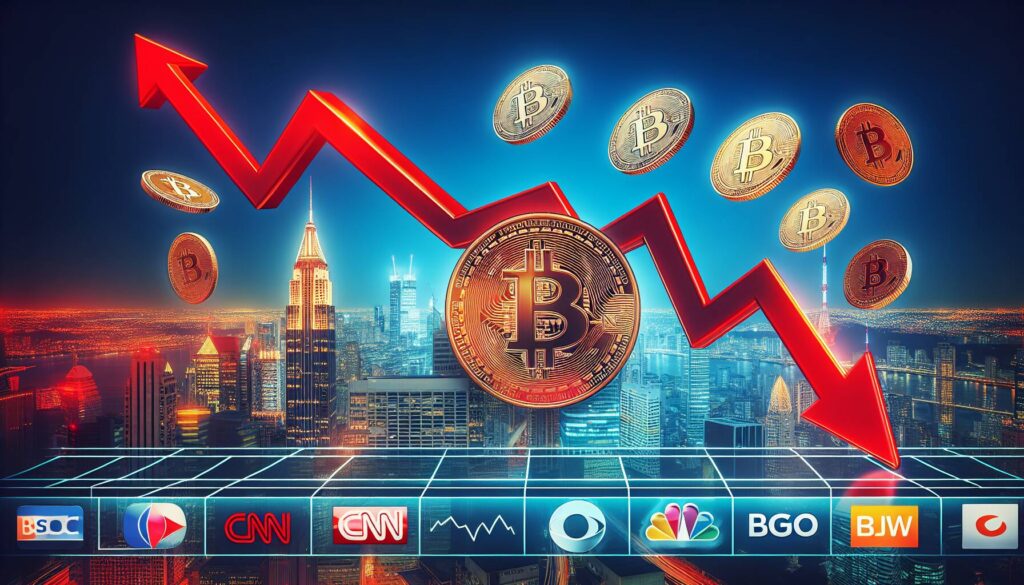The cryptocurrency market is currently facing a significant selloff, with Ether, the second-largest digital currency, leading the decline amidst escalating geopolitical tensions. As news breaks of the United States conducting military strikes on Iranian nuclear sites, traders are reacting to the potential ramifications of this conflict on global markets.
“Iran warns U.S. strikes will have ‘everlasting consequences’,” reported Bloomberg, highlighting the seriousness of the situation and the potential for broader implications on security and stability in the region.
Markets often react to unpredictable geopolitical events, and the ongoing situation in Iran has raised concerns about volatility in various asset classes, including cryptocurrency. As the situation unfolds, the uncertainty surrounding the U.S. military’s involvement is causing a ripple effect, affecting investor sentiment across the board.
With military actions that former presidents avoided, Trump’s decision to strike back has initiated complex responses from Iran, as noted by The New York Times. The various avenues Iran has for retaliation, while limited, could lead to increased tensions, further exacerbating market fears.
Amidst this backdrop, the cryptocurrency industry is bracing for potential fluctuations. Traders are keeping a close eye on developments that could impact market dynamics in the coming days, as both geopolitical events and investor reactions continue to shape the landscape.
Impact of US Strikes on Iran’s Nuclear Sites and the Crypto Market
Key points related to the current geopolitical situation and its potential effects:
- Ethereum Selloff: Ether’s drop is indicative of a broader crypto market reaction to geopolitical tensions.
- US Military Actions: The US has attacked Iranian nuclear sites, escalating conflict and impacting markets.
- Consequences for Iran: Iran warns that US strikes will have “everlasting consequences,” indicating potential for further conflict.
- Limited Response Options: Iran’s restricted capabilities to retaliate may influence future geopolitical strategies and create uncertainty.
- Trump’s Strategic Gamble: Trump’s decision to take military action where predecessors hesitated could redefine US foreign policy.
- Global Market Reactions: Military conflicts historically influence financial markets, including crypto, possibly affecting individual investments.
The interconnectedness of geopolitical events and market reactions illustrates the potential for global events to directly impact personal finance and investment decisions.
Market Reactions to Geopolitical Tensions: A Comparative Analysis
The recent escalation in U.S.-Iran relations, highlighted by military strikes on Iranian nuclear sites, has not only heightened geopolitical tensions but also triggered a notable selloff in the cryptocurrency market, particularly in Ether. This reaction points to the interconnectedness between global events and investor sentiment within volatile markets.
Competitive Advantages: The dramatic nature of the news cycle can create opportunities for platforms that thrive on real-time updates and analyses. News outlets like Bloomberg and CNN, with their extensive reach and established credibility, are positioned to capture audience attention, drawing in readers looking for insights on how these developments influence global markets. Furthermore, the involvement of high-profile figures like Trump adds to the narrative, increasing the shareability and engagement of news stories across social media platforms.
Disadvantages: On the flip side, the constant barrage of breaking news can overwhelm audiences, leading to information fatigue and a potential disregard for important updates. Additionally, news organizations that rely heavily on sensationalism may find themselves facing backlash from consumers seeking more balanced reporting. The fluctuating nature of the news cycle can also lead to a rapid loss of interest if updates do not present new angles or insights.
This heightened geopolitical tension could benefit various sectors, particularly defense contractors and cybersecurity firms, as governments and corporations may prioritize investment in these areas for protection against potential retaliatory actions from Iran. Conversely, industries reliant on stable international relations, such as shipping and energy, could face significant challenges due to disrupted supply chains and increased costs stemming from heightened military alertness and potential conflicts.














